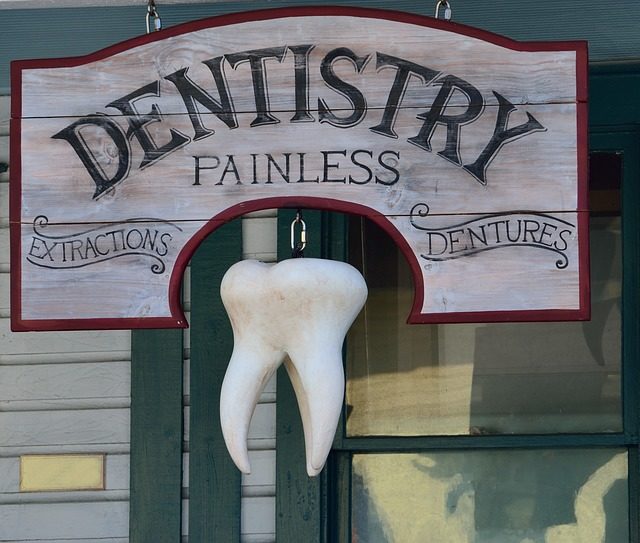Very few treatments have gained as much attention and observation as probiotics. In fact, a collective review of studies recently compiled some of the favorable effects of probiotics in the prevention and treatment of four major digestive-tract disorders:
- Acute infectious diarrhea
- Necrotizing enterocolitis
- Antibiotic-associated diarrhea
- Infant colic
With its popularity on the rise and benefits becoming more well-known, these live microorganisms have proven countless times how useful they are in treating illnesses. Whether it’s a simple tummy ache or more severe medical conditions, you’ll find that supplementing these so-called “good bacteria” can do wonders for your body.
Not sure when to use them? Below are six conditions that are believed to get better or can be prevented with the help of probiotics:
- Acute Diarrhea in Children
Childhood diarrhea occurs on an average of 2.3 times every year in children below the age of five. Fortunately, studies show that probiotics can reduce the span of time children may suffer from such an illness. The key is to pick the right kind of probiotic to give your child.
For childhood diarrhea, supplementing with the following probiotic strains has been found to help:
- Saccharomyces boulardii
- Lactobacillus GG
- Lactobacillus reuteri
- Lactobacillus casei
- Lactobacillus rhamnosus
Moreover, a combination of Bifidobacterium bifidum and Streptococcus thermophilus can also aid in preventing children’s diarrhea due to rotavirus.
2. Antibiotic-Associated Diarrhea
Antibiotics are probably some of the most common drugs prescribed to both children and adults. In fact, more than half of the younger population below 18 years old get at least one course of antibiotic prescription every year.
Sometimes, these medicines have side effects that include the reduction of good bacteria inside the gut. When this happens and the balance of gut flora is disturbed, diarrhea ensues. This has been found to occur in 30 percent of patients receiving antibiotic treatment.
This so-called antibiotic-associated diarrhea, or AAD, is a side effect also experienced by about 11 percent of all children who receive antibiotic treatment. Fortunately, years of study and research have unearthed evidence that probiotic intake can help. Most of these studies were specific to diarrhea caused by antibiotic treatment.
Since the intestines require a lot of time to recover from antibiotic treatment, you need to introduce more good bacteria to regain the balance in the gut. For this reason, some doctors prescribe adults’ and children’s probiotic medicine for as long as one whole month following antibiotic treatment.
3. Inflammatory Bowel Disease (IBD)
Inflammatory bowel diseases (IBDs) can also improve with the help of probiotics. One type of IBD is ulcerative colitis, a condition that affects the lining of the large intestine. This autoimmune disease causes abdominal pain, cramping, weight loss, and frequent bloody stools.
Based on studies, ulcerative colitis appears to be more responsive to probiotic treatment compared to Crohn’s disease, another common type of IBD. In fact, there is solid evidence that shows how probiotics help prevent the recurrence of the disease when taken during a person’s remission. According to research, those who do so are able to sustain remission for about six to 12 months longer compared to those who don’t.
4. Pouchitis
Pouchitis is a condition that occurs following the surgical removal of large portions of the colon. It involves an inflamed intestine lining following surgery to treat severe ulcerative colitis, affecting nearly half of all patients who underwent the procedure.
The surgery entails the replacement of the diseased part of the colon with an ileal pouch, an artificial rectum created surgically using the lowest part of the small intestine called the “ileum.” With pouchitis, the ileal pouch becomes inflamed, probably because of the buildup of bacteria inside it.
To treat patients with this condition, doctors prescribe a cocktail of antibiotics which, as you already know, can lead to antibiotic-associated diarrhea. Aside from preventing AAD due to pouchitis treatment, probiotics — particularly the VSL#3 strain — are also believed to sustain remission.
5. Necrotizing Enterocolitis
When born pre-term, babies are at risk of a lot of serious diseases. This includes necrotizing enterocolitis, a condition involving the degradation of tissues in the intestines. Once it gets inflamed, the possibility of a hole forming increases.
Fortunately, studies have discovered that a certain probiotic strain – Lactobacillus rhamnosus GG – can help keep the condition under control when combined with bovine lactoferrin. In some cases, a mix of Bifidobacterium infantis and Lactobacillus acidophilus can also help ward off this disease in newborns.
6. Infant Colic
Infant colic, which is defined as the crying and fussing of babies more than three hours a day, occurs during the first three weeks to three months of a child’s life. It affects as much as 10 percent of all normal infants.
Although its causes remain unknown, scientists do know that it can affect the parents negatively. In fact, there have been reports of infant colic leading to situations like postpartum depression in the baby’s mother, early cessation of breastfeeding, shaken baby syndrome, and parental frustration and guilt.
On the bright side, there is evidence pointing to one possible solution: probiotics. According to research, supplementing good bacteria can help lessen crying in colicky babies. More recent studies also revealed that probiotics could even help prevent colic before its onset.
Although they confirmed that probiotics do have positive effects on infant health, the researchers admitted that they have yet to discover how it works to improve colic. That said, more research is required on this matter, so it is best to consult a pediatrician before routinely giving probiotics to very young children.
The Power of Probiotics
The attention probiotics get from the public and medical community has paved the way for evidence of its positive effects to emerge. Aside from those listed in this article, many other conditions can improve or even be prevented with the help of these live microorganisms.














Leave a Reply